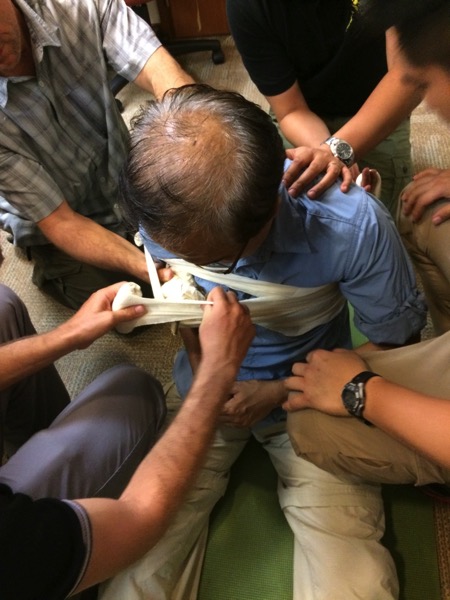I spent the first of four days in a wilderness first aid training course with colleagues from the Department of Biological Sciences (aka NUS Biodiversity Crew). This course brings everyone up to speed and prepares us for difficult situations in the field.
Ted, Amy, Morgany, Poh Moi, Frank, JC & Tommy were able to make it today and already this group makes me feel confident about student care on local or overseas field trips. Many of us have had some first aid training, either formally or from field situations. However, our exposure to incidents have been relatively low (thankfully so) hence the need for a refresher.

It is excellent that we are working together and we are having highly interactive sessions with the trainers from ARIS Integrated Medical an experienced group who are glad to work with a field-savvy group.
Group scenarios have been productive and the many hands working together here has been efficient, communicative and builds an appreciation for each other. It took years for Tommy to secure the funding and get several of us together for four days, so this is a precious experience. Certainly the FTTAs, LOs and lecturers in a field module should work together again like this in future.
First published at Otterman speaks….



